The 9 Most Heartbreaking Moments in Nerdery of 2014
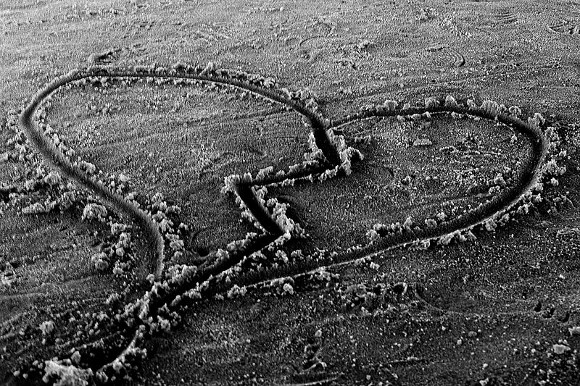 |
| CMEarnest |
2014 is just about over. For the most part, it’s been a pretty good year for us nerds. We’ve seen a lot of great stuff hit movie theaters, TV, video game consoles etc. and have seen previews of more good stuff on the horizon. The road hasn’t been entirely smooth, though; looking in the rearview mirror, there were some bumps along the way. Here’s a look at some of the most jarring of those bumps.
9. The End of The Colbert Report
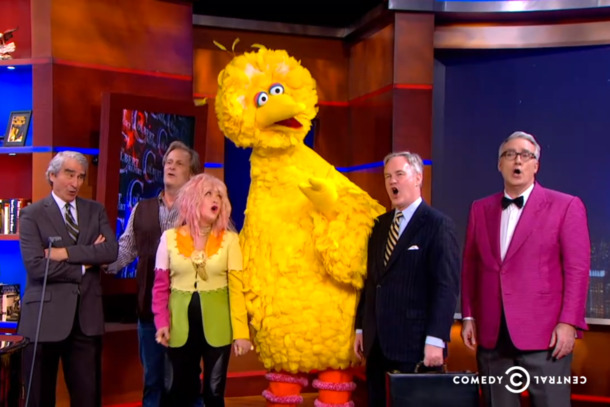 |
This gets the lowest ranking on the list because there are a few things alleviating the pain here. For starters, it’s very well known that we haven’t seen the last of Stephen Colbert on television. The whole reason that his Comedy Central show has come to an end is because he’ll be taking over The Late Show after David Letterman retires next year. There’s also comfort to be had from the final episode of The Colbert Report having been such a great send-off. A duel with death, a star-studded musical number and a ride with Santa, Abe Lincoln and Alex Trebek was a fun way to wrap up 9 hilarious years.
Having said all that, however, the show’s absence will leave a hole in the heart of nerddom that is unlikely to ever be filled. No show before it ever mixed politics and geek culture so deftly, and it seems unlikely another will any time soon, if at all. Colbert’s ability to pontificate on subjects like the cross guard on the lightsaber in the new Star Wars trailer – with as much detail and passion as he discusses economics and politics – is a rare gift that will be sorely missed.
8. Sin City 2 Failing to Recapture the Greatness of the Original.
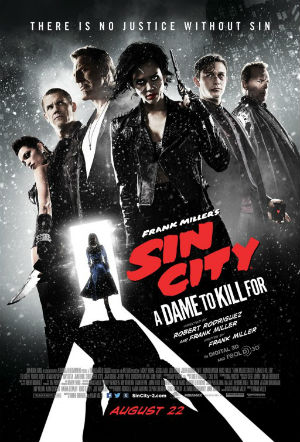 |
I’ve said before that there seems to be a limit on how long a movie franchise can go between sequels before disappointment becomes inevitable. Sin City: A Dame To Kill For seems to be right on the edge of that limit. It’s not a bad movie, but it’s also not as good as it’s predecessor.
One of the major stumbling blocks for the sequel is the amount of recasting that took place. Some of the actors passed away (like Michael Clark Duncan), while others got pregnant (like Angelina Jolie, who was Rodriguez’s first choice for the leading lady). Years worth of setbacks and delays resulted in what was once one of the most highly anticipated sequels on the horizon being released to little fanfare and quickly forgotten. While it’s entertaining to watch, it’s hard to look at Sin City: A Dame To Kill For without wondering how much better the movie could be if only it’d been made a few years earlier.
7. Hollywood Needlessly Expanding Movie Adaptations for More Money.
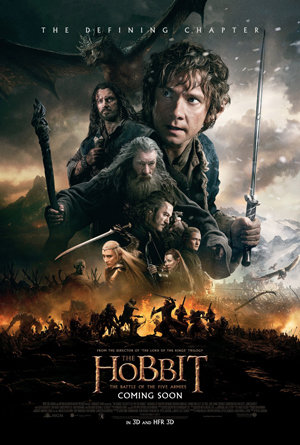 |
There used to be a time where the biggest complaint with movies based on books was how much got left out in the jump from screen to page. Nowadays, the problem is starting to be reversed, with movie adaptations being too long and bloated. The trend started out sensibly enough, with Harry Potter and The Deathly Hallows being adapted into two movies instead of one, so as to accommodate the length of the story. Once movie studios realized that fans were okay with that when it was needed, it didn’t take long for such a technique to be abused.
A notable repeat offender for needlessly splitting movies is Lionsgate, which did it with the final books in The Twilight Saga and The Hunger Games. As announced earlier this year, they’re going to do the same thing with The Divergent Series. The biggest culprits though, have to be the people behind The Hobbit trilogy. What was initially planned as two movies (which already seemed one more than was needed) got expanded into three very long films. The padding out of these series doesn’t serve as an improvement on the material; it just serves as a way for studios to squeeze more milk out of cash cows that needs to be put out to pasture.
6. Warner Bros./DC Passing up Good Opportunities for Building a Shared Universe.
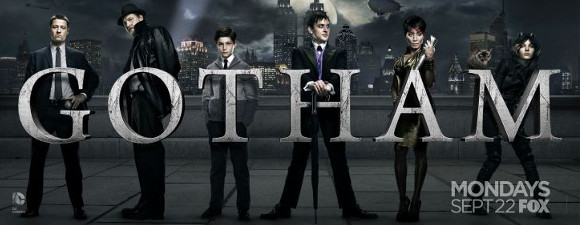 |
For the past few years, DC has been playing catch-up with Marvel when it comes to superheroes on the big screen. While Marvel has weaved a tightly connected universe of movies and TV shows, DC has had a rockier time connecting their own dots. This year has seen the introduction of three shows that could have gone a long way towards bridging the gap. Sadly, those opportunities were squandered.
The introduction of The Flash as a companion to Arrow is good, but it would be much more interesting if those shows were both connected to the bigger picture being set up with their movies. Then there’s Constantine on NBC, which could have been a great way to set up Guillermo del Toro’s long-in-the-works Justice League Dark project. The biggest missed opportunity, though, is Fox’s Gotham. The early years of James Gordon and Bruce Wayne could have made a great introduction to the new version of Batman that Ben Affleck will portray in 2016. On their own, these projects are OK, but combined together they’d be awesome. Sadly, they all exist in their own small areas instead of one big sandbox. While there’s been reference to these separate things being a sort of multiverse, there’s no indication of any plans for multiversal mayhem.
5. Minecraft Going From Being the Biggest Indie Game in the World to Being Just Another Microsoft Property.
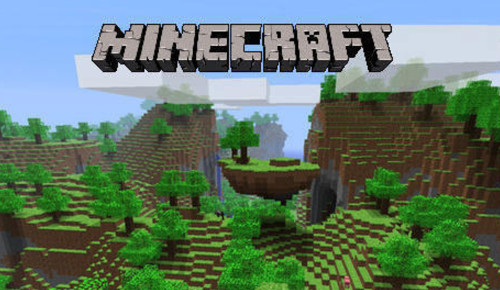 |
In May of 2009, Markus “Notch” Persson released a work in progress called Minecraft, which slowly built up momentum to eventually become a global sensation. Less than two years later, the game had surpassed 1 millions sales, which was an impressive feat for something that had been spread primarily by word of mouth.
This past September, the game’s status changed from being a giant among indie titles, to being one of many things owned by the much bigger giant that is Microsoft. While it’s not a foregone conclusion that this will be a bad thing, it’s still sad to see a small company on the rise to greatness, swallowed by a bigger fish. The history of the video game industry is full of woeful tales of developers getting ruined after being bought out by larger companies. For just one example, take a look at what happened to Bioware after being purchased by EA, and it won’t be hard to see why fans are worried about the fate of Minecraft.
4. Big Game Studios Continuing to Release Broken Products.
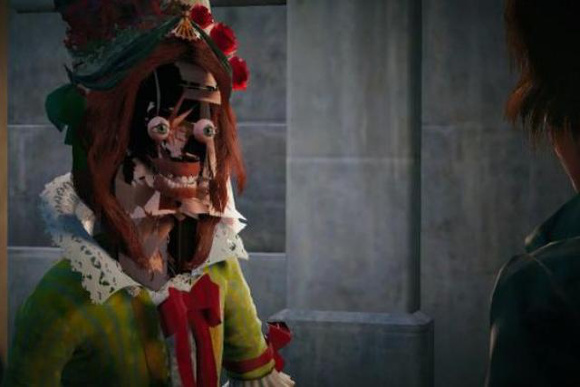 |
2014 saw a lot of great games released, but there were also more than a few games released that might be great someday, but are currently buggy messes. In a day and age where studios do everything they can to encourage players to order their games as early as possible, they’re sadly not always doing doing enough to ensure that the money spent on pre-orders is well earned. In a particularly noteworthy offense, Sega did everything they could to delay bad word of mouth about how awful Sonic Boom was, going so far as to not even send out review copies.
The most notable perpetrator in letting down their audience this year was Ubisoft, who released not one, but two games that left many players feeling cheated. In May, they released Watch_Dogs, which in addition to not looking nearly as polished as it had been previewed to be, was full of fun ruining glitches. 6 months later, that blunder was followed up with the release of Assassin’ Creed Unity, which was so buggy that many players couldn’t keep it running long enough to get frustrated with its glitches. The incident has become a rallying point for some as an example of why the pre-ordering of games should be stopped altogether, and hopefully that sentiment will continue to spread, because if it doesn’t and customers keep on putting their money towards games that aren’t even available for purchase yet, studios will continue to cut corners in quality.
3. Edgar Wright Leaving Ant-Man.
 |
After years of building a reputation among superhero fans as risk takers, Marvel Studios came upon their first major hurdle this year. The very long in development adaptation of Ant-Man hit a huge snag when director Edgar Wright walked away amid rumors of studio interference. While both sides did their best to give the impression that there were no hard feelings, word was circling the campfire that Marvel wanted to play things safer than Wright had intended.
Almost as frustrating as the loss of Wright was the subsequent failed courting of potential replacements by Marvel who didn’t sign on. Among those were Adam McKay and David Wain, the latter of whom is the one guy that had me more excited than I’d been when Wright was still attached. Seriously, if you’ve never seen The Ten or Wet Hot American Summer, you should do so ASAP. They’re hilarious movies, and the idea that the man behind those gems almost ended up taking over Ant-Man but didn’t sigh on… it’s kind of soul crushing. Wright’s eventual successor Peyton Reed isn’t a bad director by any means, but he feels like a far safer and tamer choice. The changing in gears has resulted in the first Marvel movie on the horizon that doesn’t leave one feeling excited. Time may prove me wrong when the movie opens in July, but right now it’s hard to feel optimistic.
2. Gamergate Reminds us How Hard it Is to Have Important Conversations Without People Losing Their Damned Minds.
 |
| Image made combining the works of Crosa and Staff Sergeant Stacy L. Pearsall |
Back in August, a relatively unknown indie game creator named Zoe Quinn was accused of having sex with a games journalist to get a good review for her game Depression Quest. Afterwards, she was assailed with an onslaught of harassment and threats by assholes online. Somewhere along the way, people tried to change the tone of conversation to focus on a broader point of eroding ethics in gaming journalism, and thus was born the hashtag #Gamergate.
There are two frustrating elements about Gamergate. First off is the name, which blows things out of proportion, just like nearly every media scandal with a nickname ending in the word “gate.” As a general rule, anything which doesn’t involve an abuse of presidential power should not be compared to the Watergate scandal. The other problem with Gamergate is that it has combined two topics in gaming that do need to be discussed (sexism against women and the way that gaming news sites have slowly devolved into independent PR wings) and has created an environment where neither subject can be discussed without people going ballistic against each other.
I don’t believe for a moment that every person associating themselves with the Gamergate hashtag is a misogynistic asshole that wants to stamp down on women. Unfortunately, there are enough assholes that have used the name of the movement to do horrible things to women that everyone else ends up looking like an asshole by association. The problem here is that talk about gaming journalism being branched off from the Zoe Quinn incident leaves the conversation permanently tied with abuse and harassment in such a way that one can’t talk about either topic without needing to discuss the other.
A better subject to launch a conversation about gaming journalism ethics came along two years ago, when the creators of Mass Effect 3 sold a game based on lies about an intricate ending that failed to deliver on their hype. When players got angry and demanded a proper ending, gaming sites painted them as a bunch of whining crybabies. That would have been the golden moment for players to demand better ethics from journalists. Sadly, that moment was squandered. At this point one can only hope that people can calm down and have a rational discussion, but if 2014 has taught us anything about social media, the lesson is that it’s too easy for such discussion to break down very quickly.
1. The Clusterfuck Surrounding The Interview
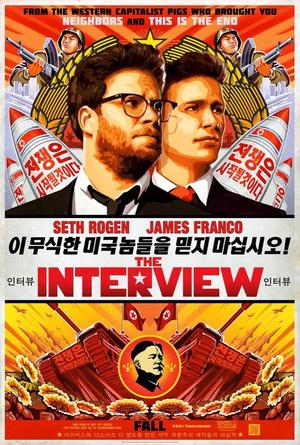 |
December has not been a kind month to Sony Pictures. After being victimized by a major hacking attack, all sorts of private information was spread across the internet along with multiple movies being leaked. Things got even worse when the same hackers threatened 9/11 style attacks on any theaters screening their controversial assassination comedy The Interview. The top 5 movie theater chains in the US responded to the threats by declining to screen the movie, which prompted Sony to pull it from release. The decision was met with criticism from all corners, even President Obama.
Things have started to turn around for the better with Sony deciding to release the movie after all, but it’s still a frustrating way to end the year. Instead of being released nationwide, the film will now trickle out to a relative handful of theaters and will mostly see distribution online. Moviegoers who’d looked forward to seeing the film on a big screen will have to settle for their TVs or computer, and Sony made a decent amount of money through downloads, but have still lost millions in revenue. It’s one of those rare and impressive compromises that manages to leave everyone unhappy.
The bleakest part of the whole mess is how cavalier most news sites have been about reporting on the content of the leaked emails from Sony staff (something the hackers counted on). I’m as curious as anyone about their plans for future Spider-Man movies, but that doesn’t give me the right to hack into their servers to get an inside scoop. Reading details that were hacked by someone else isn’t really any different from doing the hacking. Just a couple of months before the Sony hack, people were outraged at the invasion of privacy when nude photos of Jennifer Lawrence were leaked onto the net. It was generally agreed that anyone who would look at those images was doing something wrong, but that same morality doesn’t seem to have been applied to private communications between Sony employees.
Feel free to let me know what your biggest heartbreaks of the year were – and how you hope to mend your wounded souls next year – in the comments. Here’s to a happy 2015!
Previous Topless Robot Articles by Greggory Basore Include:
7 Reasons Why The Feud Between “Casual” and “Hardcore” Gamers is Literally Ridiculous.
10 Reasons Why An All Female Ghostbusters Reboot is the Best Possible Direction
10 Reasons Hollywood Needs to Stop Catering to Whiny Assed Nerds like You and Me
The 7 Most Amusing Reactions and Possibilities to come from Microsoft Buying Minecraft
10 Reasons I Don’t Blame Robin Williams for Wanting to Die
The 5 Most Frustrating Moments Game of Thrones Season 4 (and 5 Ways to Wait for Next Year)
The 15 Geekiest Shows of Summer 2014
8 Unanswered Questions Left by X-Men Days of Future Past
5 Lessons Hollywood Should Learn from The Lego Movie (And 5 Ways they’ll Miss the Point)
16 Heartbreakingly Awesome bits of production art that never made it to the screen.
